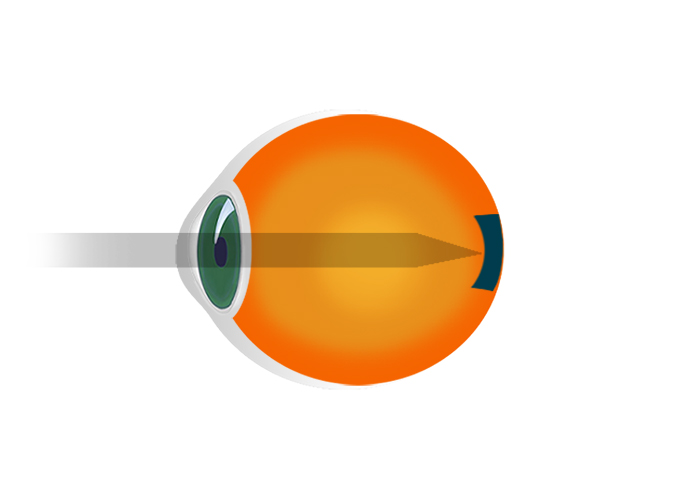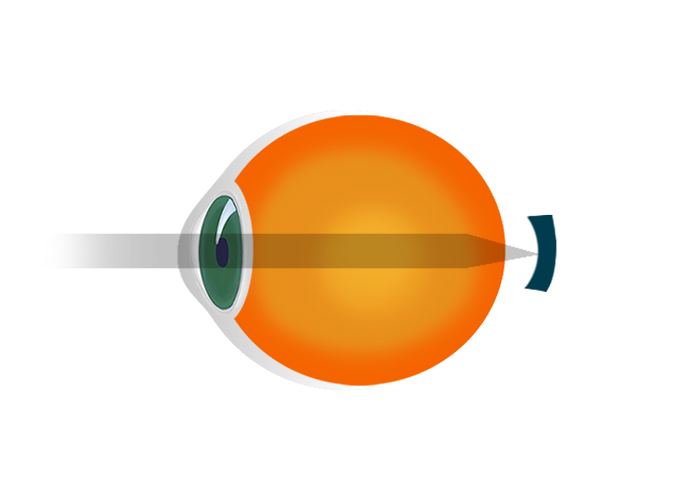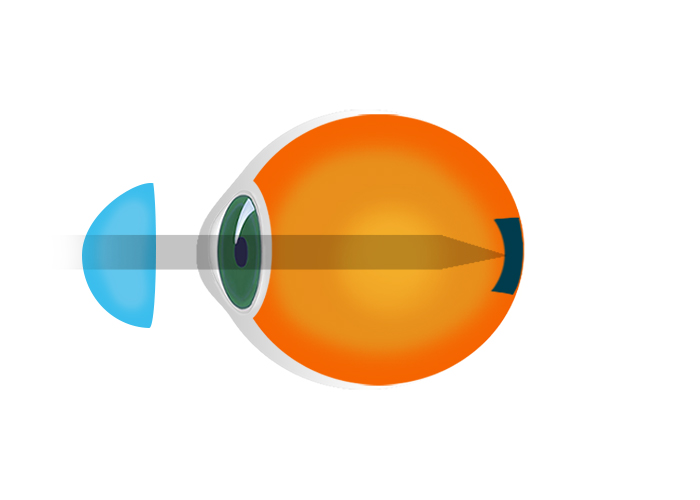Hyperopia (farsightedness): Symptoms and treatment

All forms of visual impairment are unpleasant and restricting. With the help of contact lenses and glasses, however, you can manage most of your everyday life activities without any problems.
As part of a series on the different types of visual conditions, Lentiamo wants to inform you on impairments such as shortsightedness (myopia), presbyopia and astigmatism.
We'll inform you about hyperopia, also known as farsightedness, in this article.
What is hyperopia?
People with hyperopia can have visual difficulties at all distances due to various factors such as age, dioptres and accommodation (in)ability.
Hyperopia, also called farsightedness, is a congenital refractive error. If you are under 30 years old, farsighted and have a low dioptre value, you can probably see well at all distances. If farsightedness is not corrected, you can see well, but you overstrain the muscles in your eyes, which can lead to fatigue or other very common asthenopical symptoms such as headaches, eye pain, blurred vision or even dizziness. With long-lasting, uncorrected hyperopia, the ability to see well up to a certain distance decreases significantly over time.
People with higher dioptries see poorly to both far and near distance. Immediate help can be provided by wearing glasses, contact lenses and vision correction surgery such as LASIK.
What are the symptoms of hyperopia?
If your eyes have hyperopia, you might suffer from:
- trouble focusing on nearby objects
- headaches
- blurry vision
- eye strain
- fatigue after reading
What causes hyperopia?
If your eyes have farsightedness, the light rays are not focused as they should be. From a physical point of view, the eye is shorter than normal. This causes the light to be focused behind the retina, resulting in blurred vision.
Normally, the cornea, the clear outer layer of your eye and the lens focus images directly on the surface of your retina, which join forces in the back of the eye.
How can you treat hyperopia?
All it takes to diagnose hyperopia in Ireland is an eye test, easily performed by your eye doctor or optician. Contact lenses, glasses or refractive surgery can correct your vision.
With hyperopia, the prescription that your eye doctor or optician gives you has a positive number, such as +3.00. The higher the number, the stronger the eye condition and the lenses required.
Visit your optician or eye doctor to take an eye test and order your eyewear at Lentiamo!











Comments